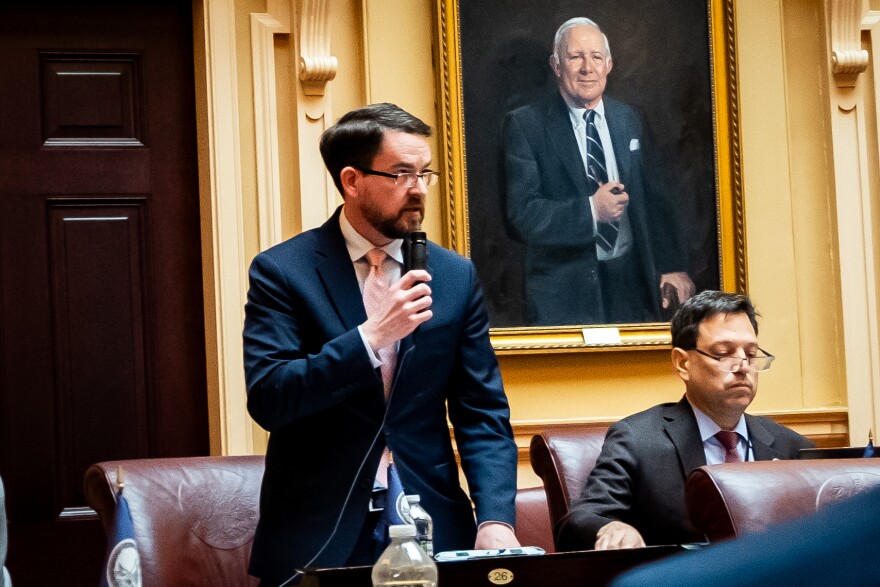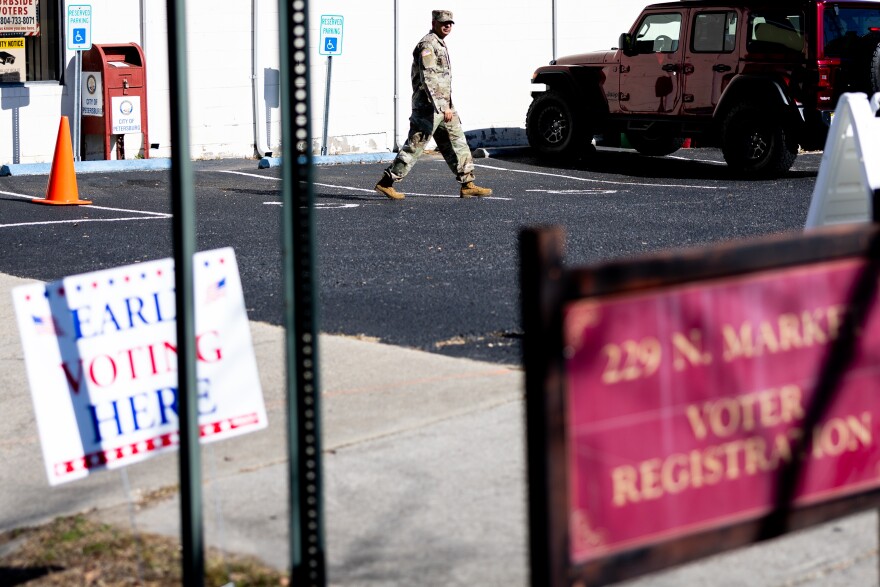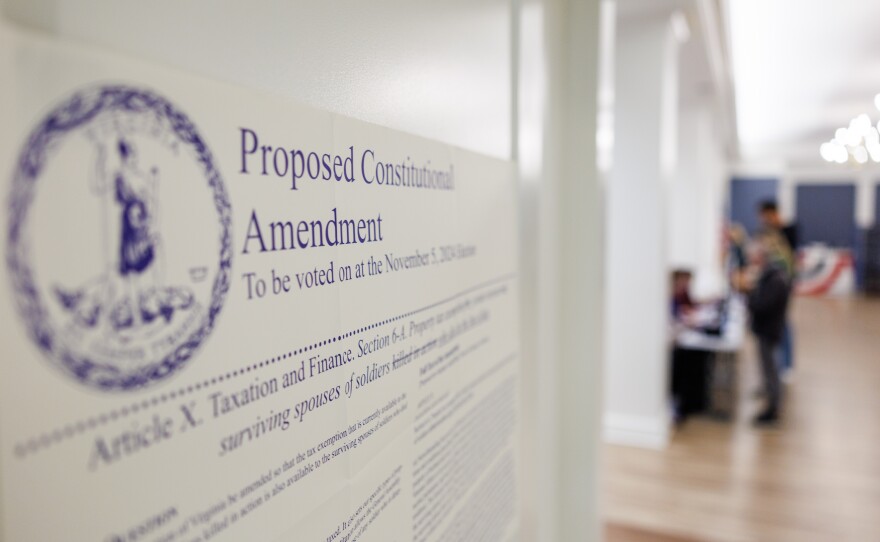Virginians overwhelmingly voted to approve a state constitutional amendment on Tuesday’s ballot that will expand a property tax exemption to surviving spouses of all service members who've died “in the line of duty.”
According to unofficial results, 93% of voters supported it — including Randy Baker, a veteran and Hanover County resident.
“My brothers and sisters that gave everything that they would ever have … their families deserve to be taken care of,” Baker said.
State Sen. Jeremy McPike (D–Woodbridge) sponsored the amendment in the General Assembly. He recently told VPM News it was meant to cover a small group of spouses currently left out of the existing exemption’s language.

The property tax exemption available now is only for the spouses of service members who are either 100% disabled or who were “killed in action” — which is a specific Department of Defense term that means the death occurred at the hands of enemies.
“Right now, we have service members who die in the line of duty, for instance, a training accident,” McPike said. “Those surviving spouses … they don't get anything.”
Veteran Monti Zimmerman, who helped push for the new amendment through the Military Officers Association of America, said that in addition to training accidents, there have been vehicle and helicopter crashes that have killed service members — but because they weren’t killed directly by enemies, their families wouldn’t have qualified for the exemption.
Zimmerman said he thinks leaving these service members’ families out was an “unintentional oversight” years ago when the original exemption’s language was being drafted. The “killed in action” language ultimately went into effect in 2015.
“They [lawmakers] didn't understand the nuance of what group they were leaving out,” Zimmerman said.
McPike’s constitutional amendment was first passed in 2023. Amendments to the state constitution have to clear the General Assembly twice with an intervening general election in between, then be passed in a statewide ballot referendum.
Previously, stopgap legislation allowed localities to grant local tax breaks to this group of surviving spouses — but Zimmerman said that solution was “not acceptable.”
“In several counties, there's only one surviving spouse that will get that benefit, and it's pretty tough for them to go to their county board of supervisors and say, ‘Oh, I should have you write a law for me,’” Zimmerman said.

He estimated that a little over 100 people will be newly eligible under the new Virginia Constitution language, based on data from the Department of Defense.
Traci Voelke is among those impacted: Her husband, Paul, was killed in a vehicle accident while serving in a combat zone in Afghanistan in 2012.
She applied for the exemption in 2020 and was granted it — only to be told years later that she had mistakenly received it.
“Since my husband wasn't killed by enemy fire, they revoked my exemption and indicated that I might have to pay back property taxes,” Voelke said.
When Voelke’s husband died, their kids were 8 and 6 years old. Living on one income in Fairfax County was expensive, and the tax break gave her a bit of breathing room even though she said she didn’t receive a full tax exemption and still had to pay about $150 every quarter.
“It was really helpful and allowed us to afford to live in the area,” she said.
According to Joshua Wick, a spokesperson for the Department of Defense, what constitutes a death in the line of duty is independently determined by each service — and isn’t defined within DOD policies.
However, Zimmerman said a service member shouldn’t have to be deployed for the death to be considered “in the line of duty.” As long as the death wasn’t the result of a criminal act the service member was conducting, he said it should be counted.
“If a person is serving and gets cancer and is still on the rolls as active duty and they die and they're being treated,” he said, “that could be in the line of duty.”




